The furnace at Govăjdia (Hunedoara County, Romania), where cast iron parts were produced for the Eiffel Tower in Paris
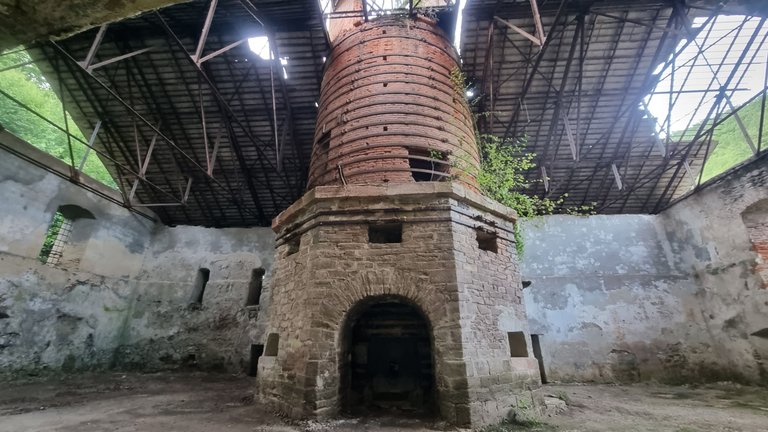
Hello friends
I am sure that many of you have heard or even visited one of the most emblematic places in Paris, the Eiffel Tower.
No no, in today's post we are not going to visit the Eiffel Tower but we are going to a place that I am sure not many people know about, namely the place where some of the cast iron pieces that were used to build the Eiffel Tower were made.
Yes, you read it right, there is a place here in Romania, more exactly somewhere about 20 kilometers away from Hunedoara county, the village of Govăjdia, where the oldest blast furnace in Europe was built on the outskirts of this village.
Seeing this fabulous history and reading that cast iron parts for the Eiffel Tower were produced here, I wanted very much to see this furnace, to walk through the glory years of the place.
The access to the village of Govăjdia is on a relatively good but very narrow road, in some places two cars can barely pass one next to the other.
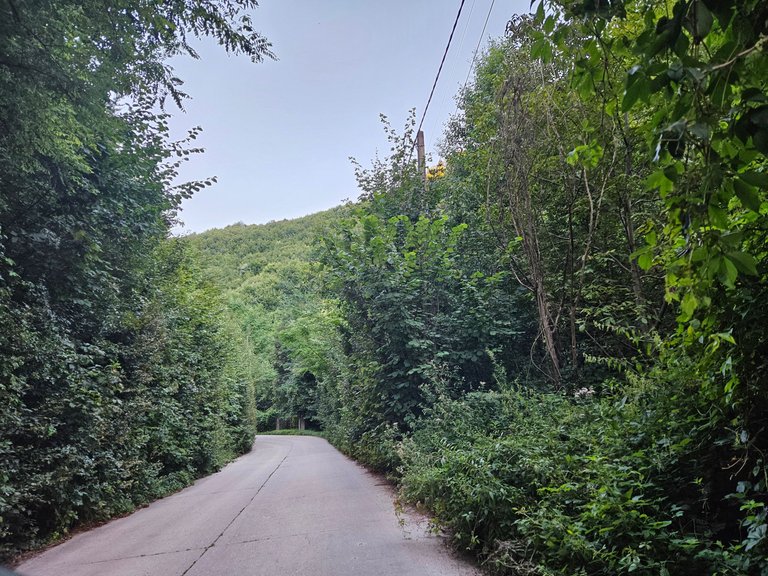
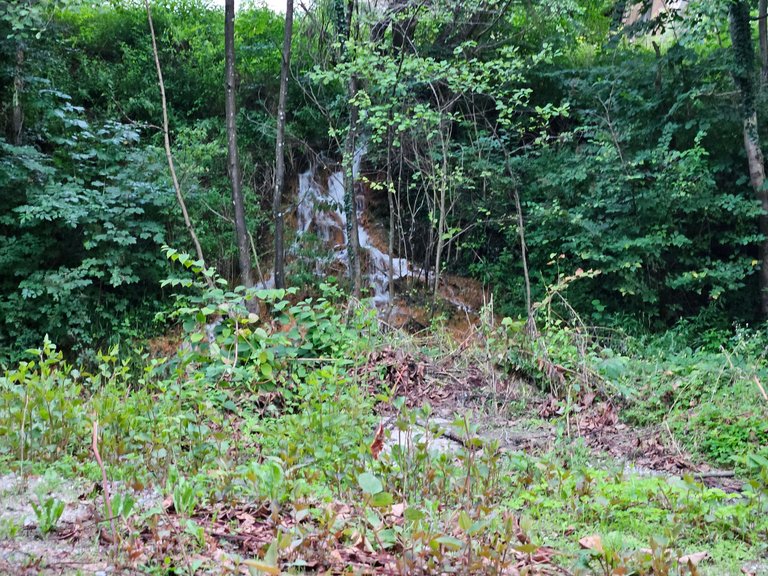
But never mind that, my desire was to get there, even the gps had an error of a few hundred meters, I was lucky that I knew the area from the pictures seen on the internet.
If you were a simple passer-by you will surely pass by this place without noticing it, I arrived in front of a dilapidated building I stopped the car and I pressed my phone to see through which place the access is made.
Unfortunately, this place has not been visited by tourists lately, it seems that no one cares about it to bring it back to the tourist circuit.
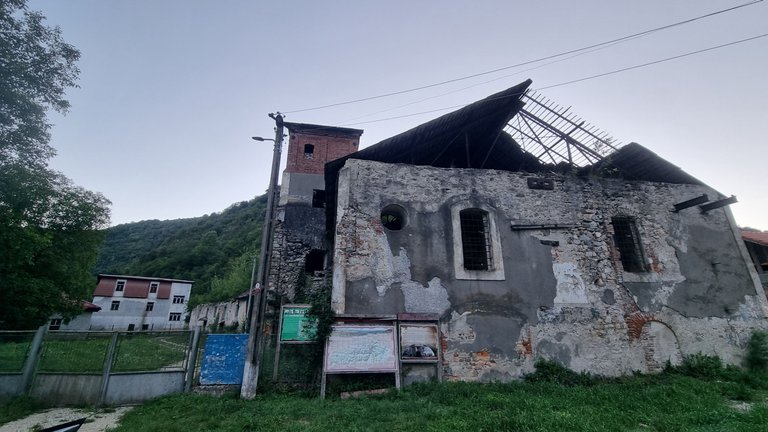
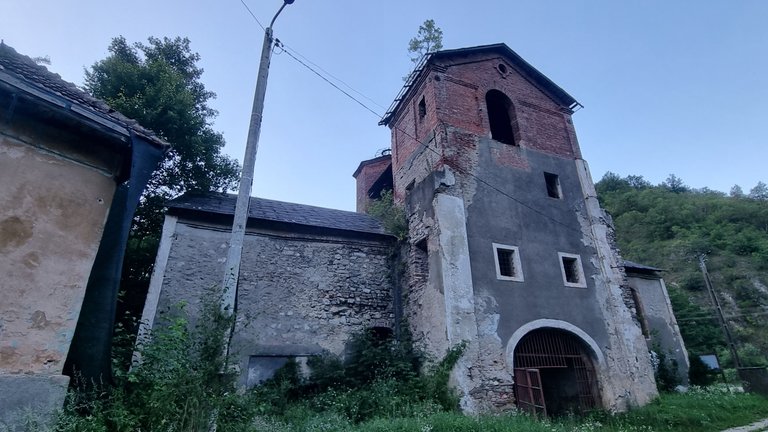
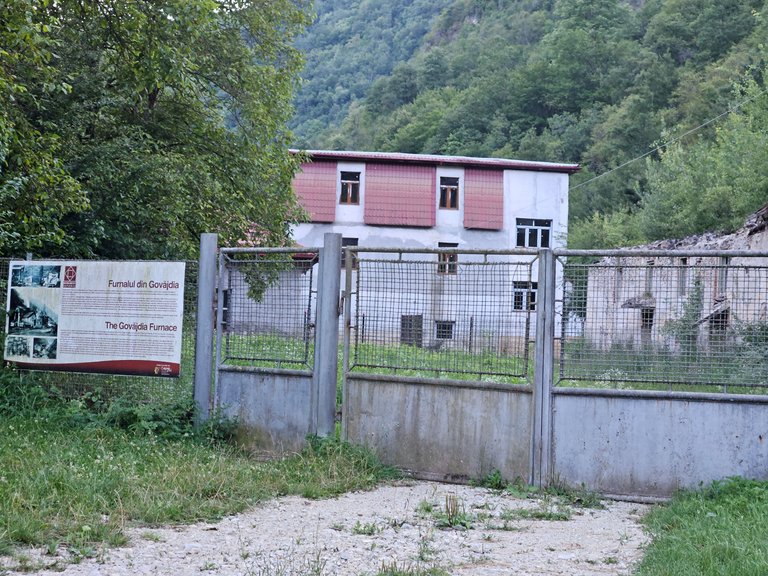
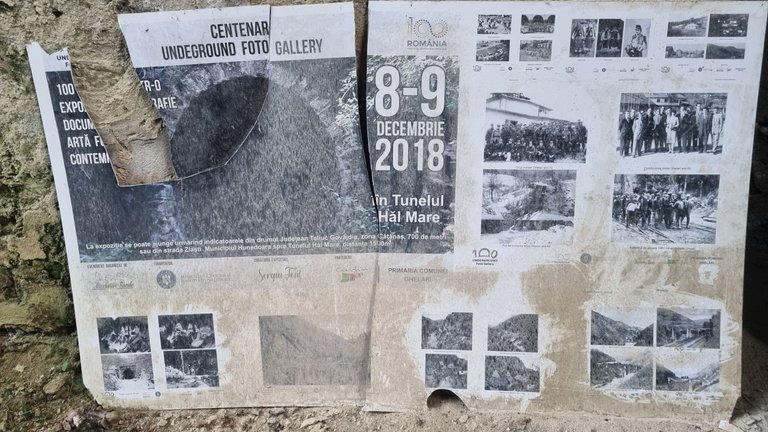
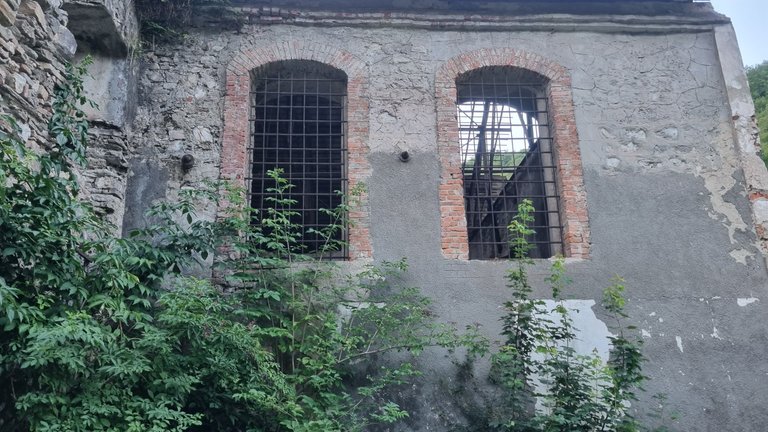
The only evidence that this was the Furnace were some informational signs damaged due to the passage of time, so I plucked up my courage and entered through a gate into the inner courtyard.
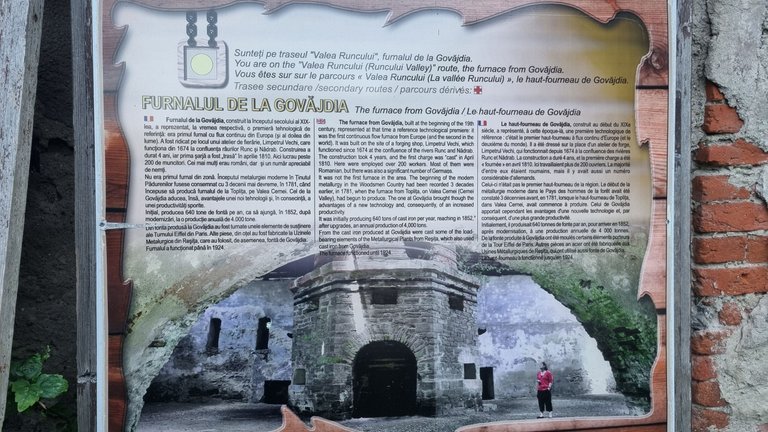
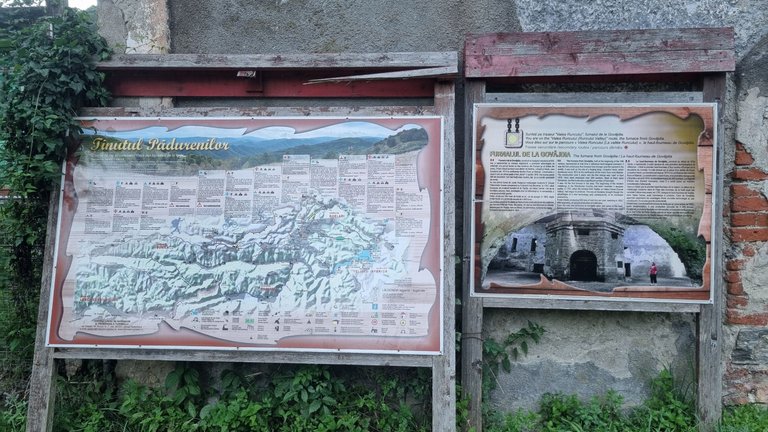
Two centuries of history
The Govăjdia Furnace can still be seen today, more than two centuries after its establishment, in the village of the same name, located 20 kilometers from Hunedoara, with houses scattered in a valley bordered by steep slopes, covered with extensive forests, shaded most of the day.
The Govăjdia furnace was built between 1806 and 1810 on the site of a former iron workshop from the Middle Ages. At the end of the 19th century, the blast furnace, fed with iron ore from the old mines in the Poiana Ruscă Mountains, produced over 8,000 tons of gray cast iron annually.
Exhibits made here were presented at the Universal Exhibition in Paris in 1889, for which the Eiffel Tower was erected, and a legend popular with locals says that cast iron pieces made in Govăjdia were used to build the landmark tower of France.
The blast furnace ceased its operation at the beginning of the 20th century, with the development of the Hunedoara Iron Works, which became the main producer of cast iron in the Austro-Hungarian Empire.
Its huge furnace has been preserved intact and offers visitors a living testimony to the iron industry of two centuries ago. Although in need of rehabilitation, the historic monument has been ignored by the authorities in recent decades.
Here there is no opening hours or ticket office, you enter on your own, I like that it gets interesting.
After a few meters in front of me appears the building inside which is the furnace, I don't know why I was overcome by some emotions knowing that I am there.
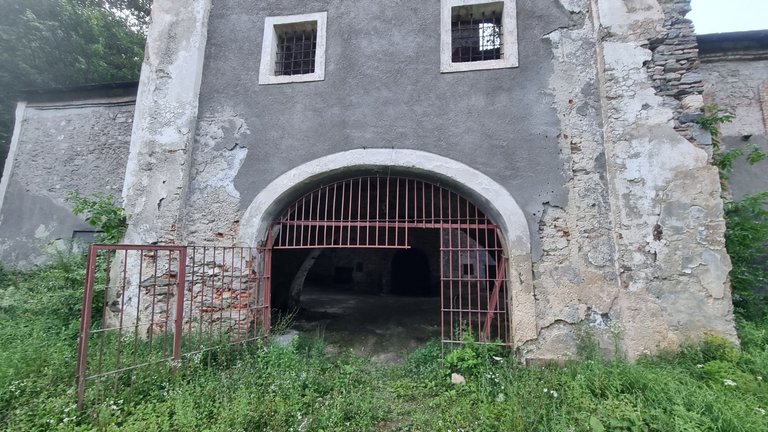
I entered through that gate and after a few steps I see the furnace, at first sight I was speechless, I started to analyze the place a little and I realized that the place is a ruin and that it was quite dangerous for me to be there, I noticed that pieces of the roof were missing.
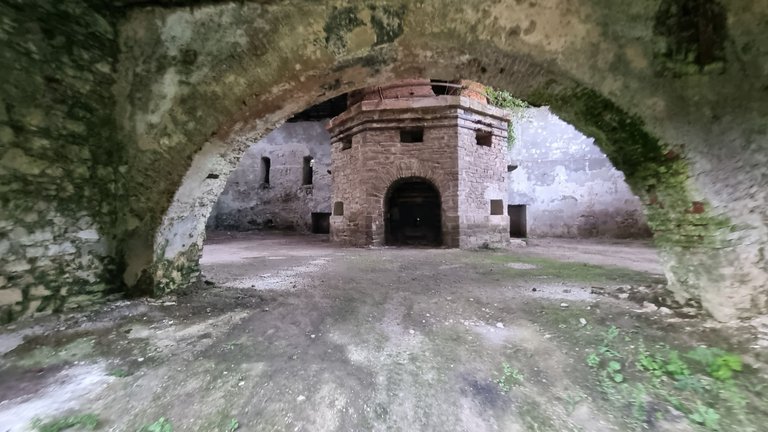

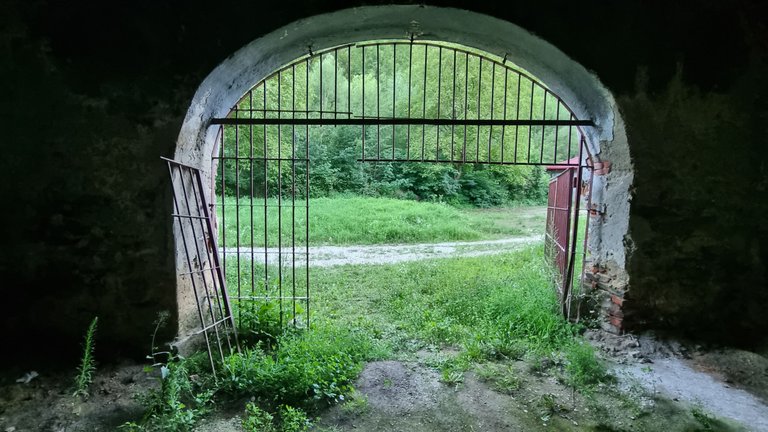
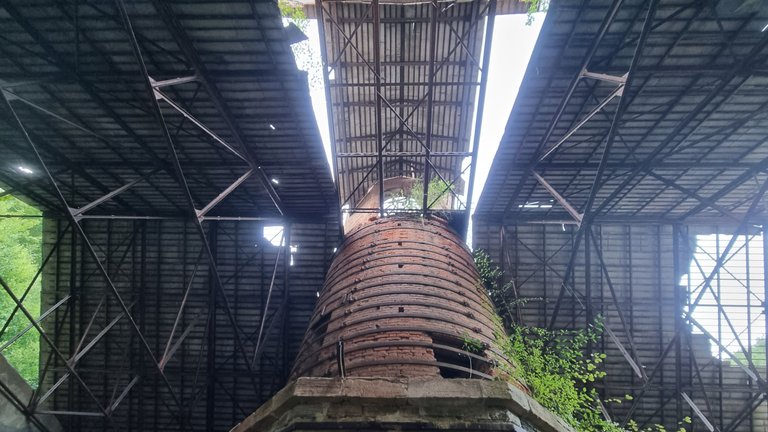
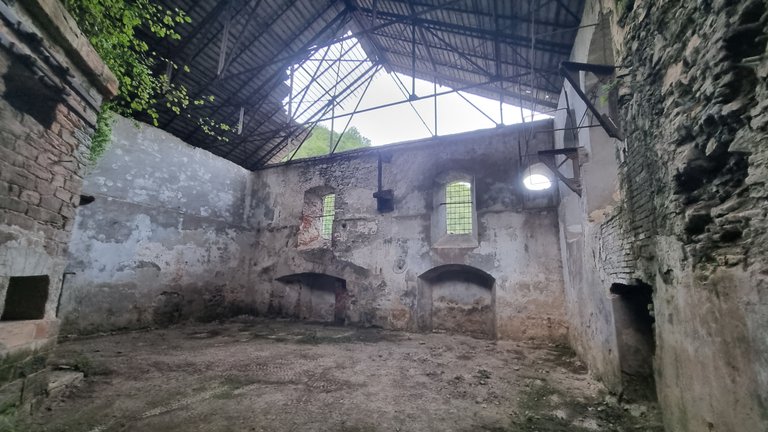
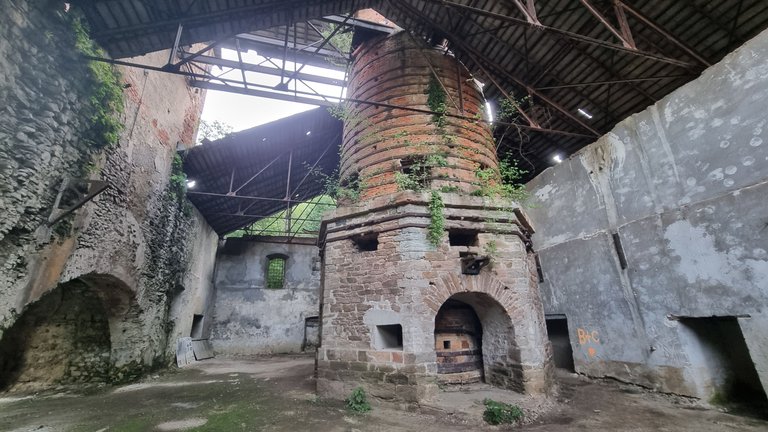
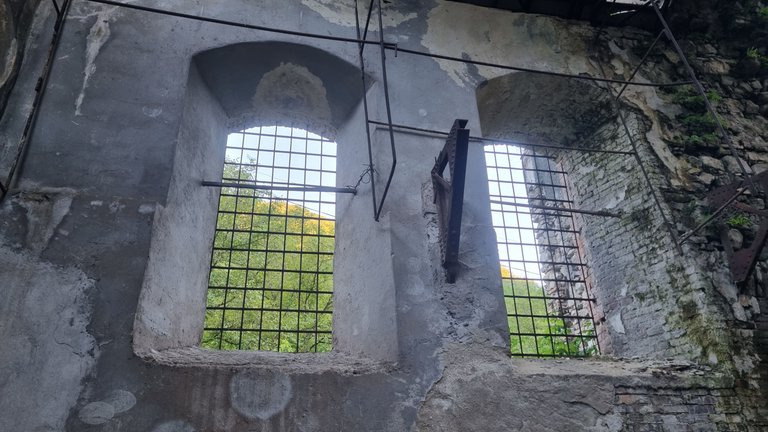
But even so I took a few pictures of this place, more I took a picture inside the oven (which is the original one) which has survived to this day.
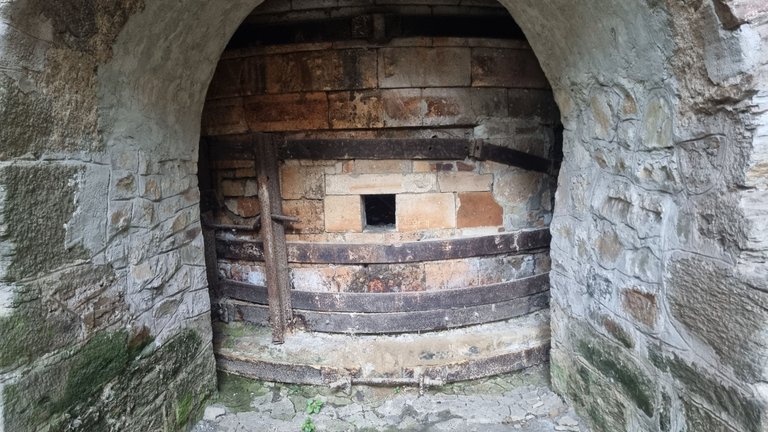
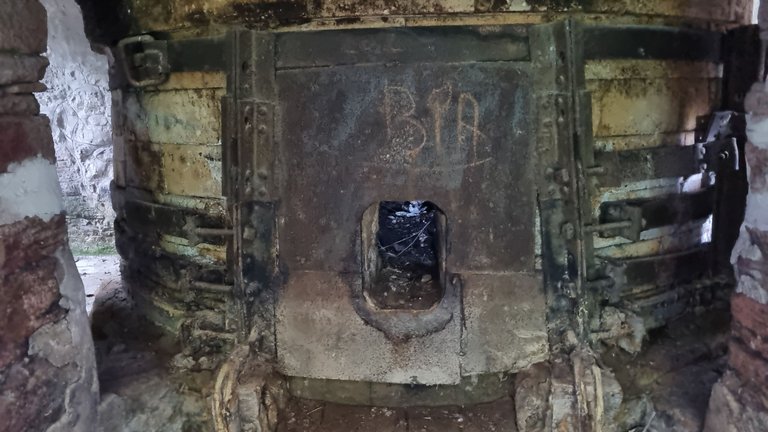
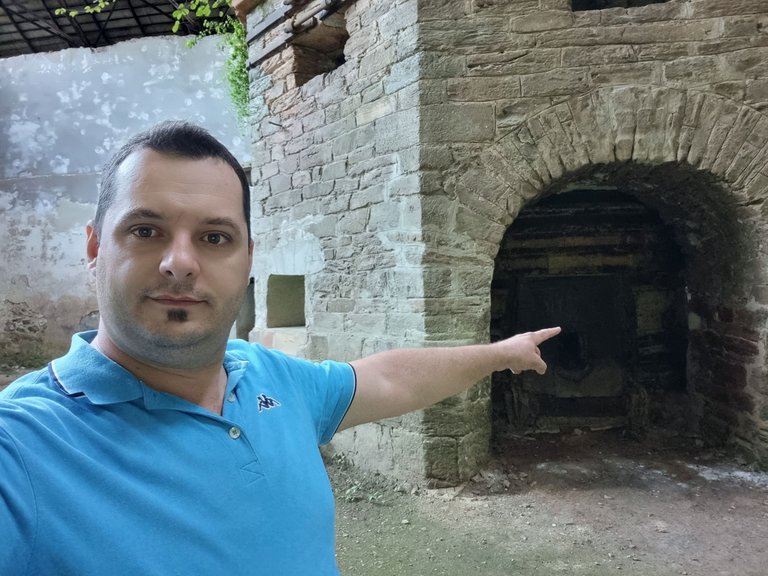
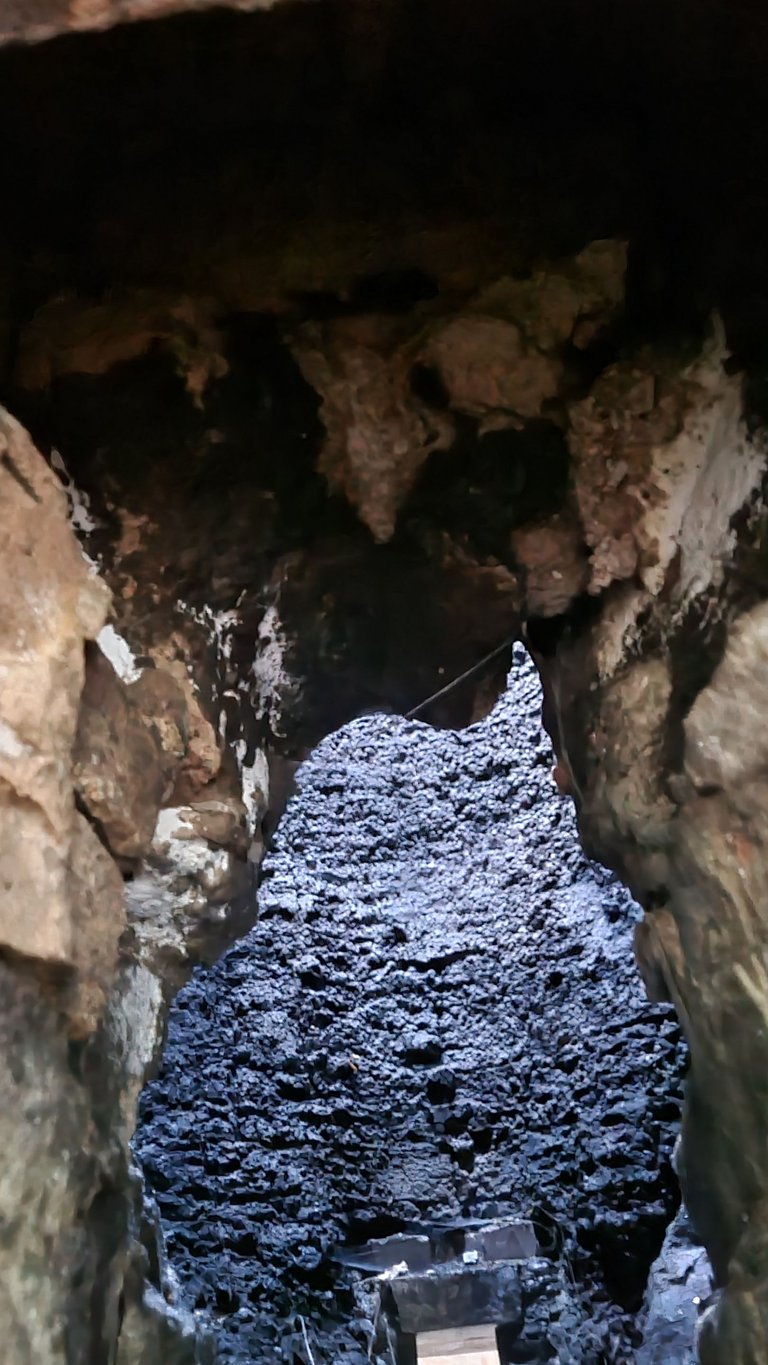
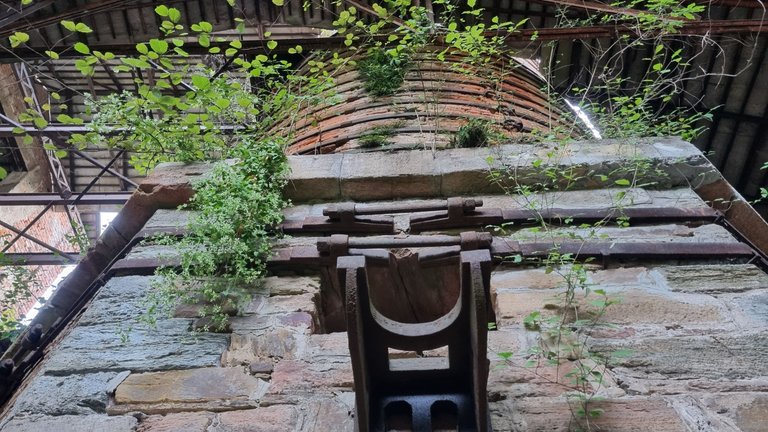
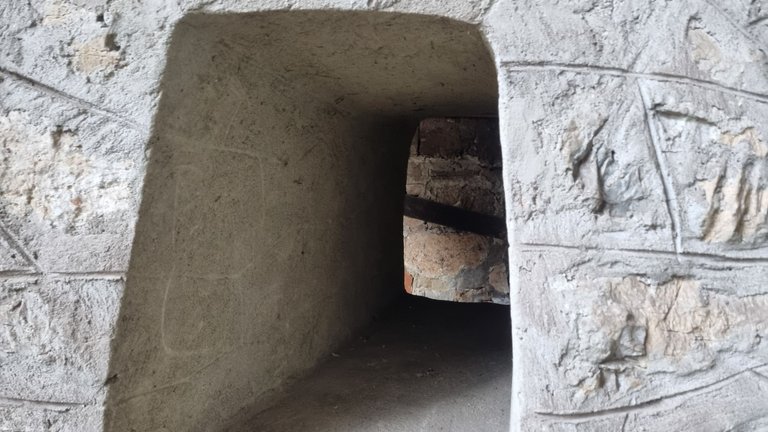
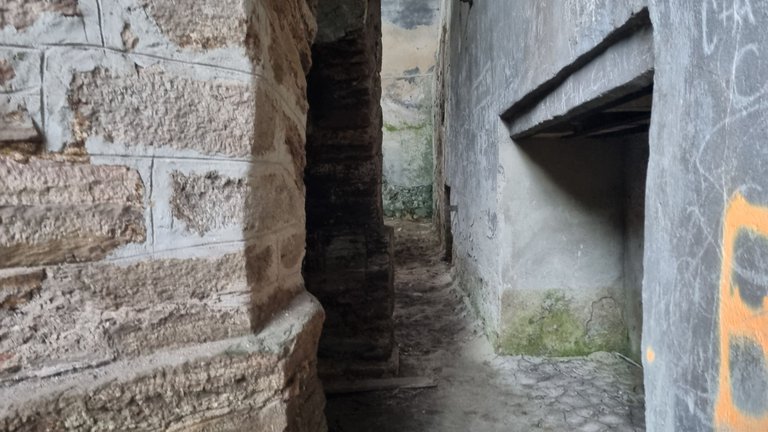
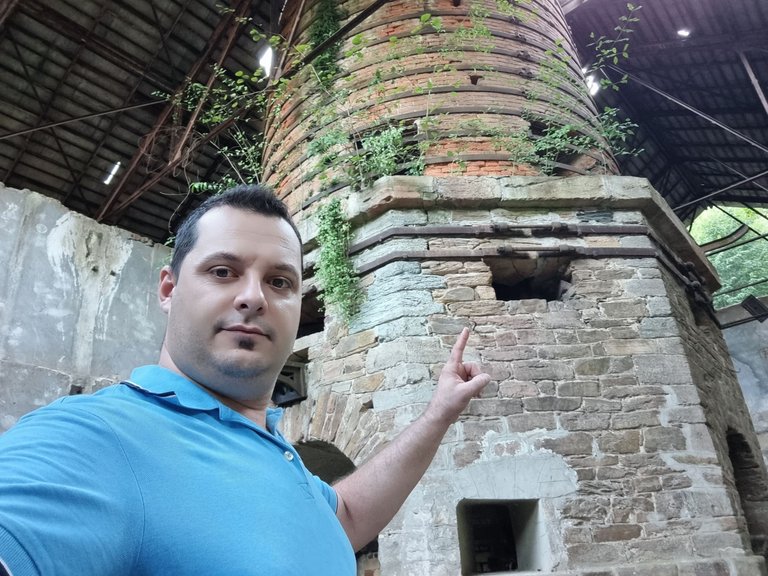
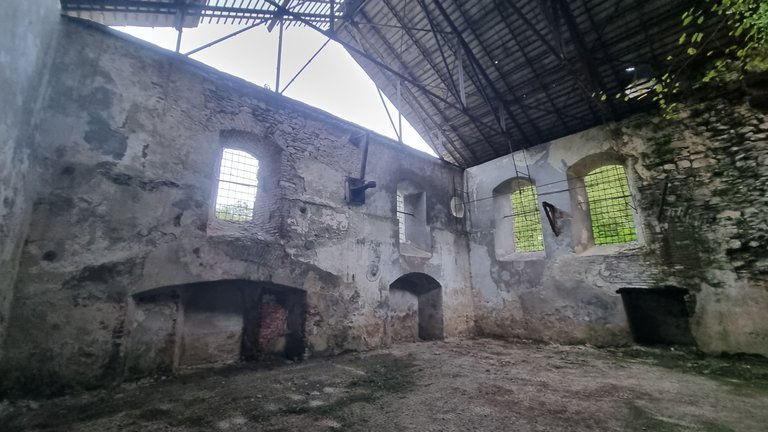
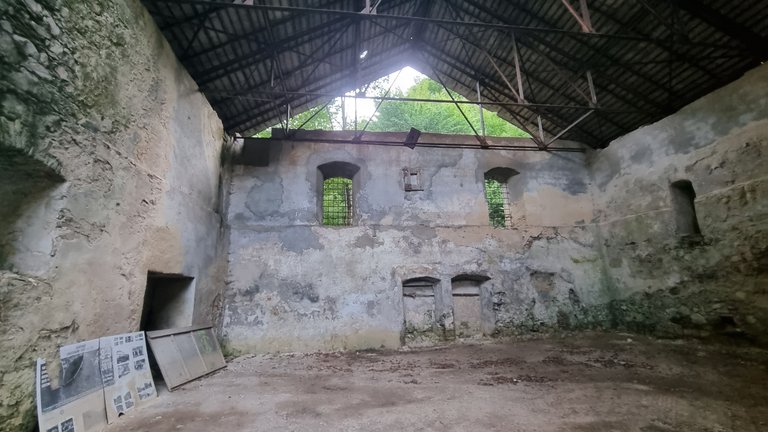
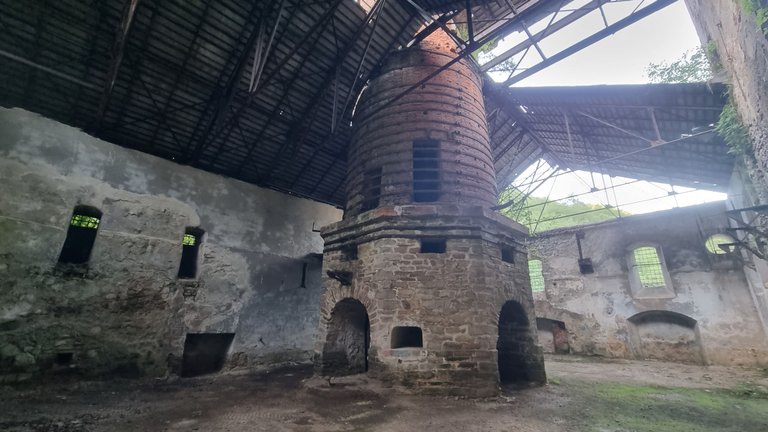
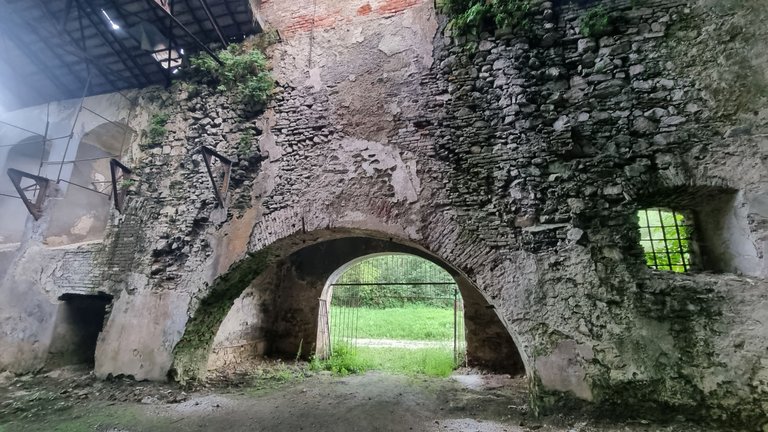
I didn't stay too long inside because as I wrote above it was quite dangerous, and when I left I had the bad luck to meet a dog (I am afraid of dogs), but I escaped with good luck.
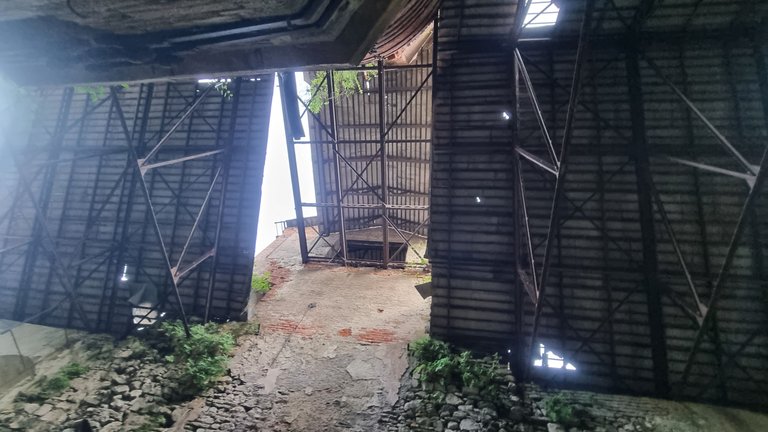
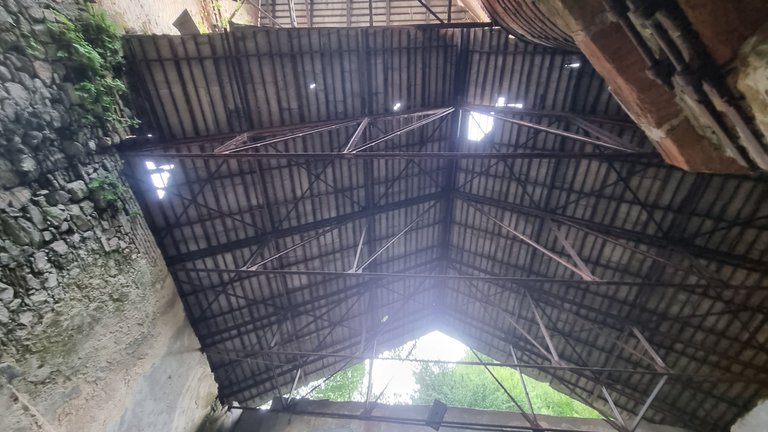
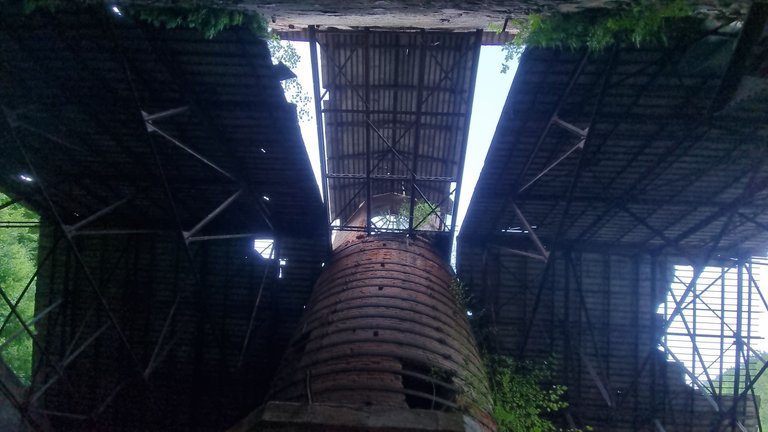
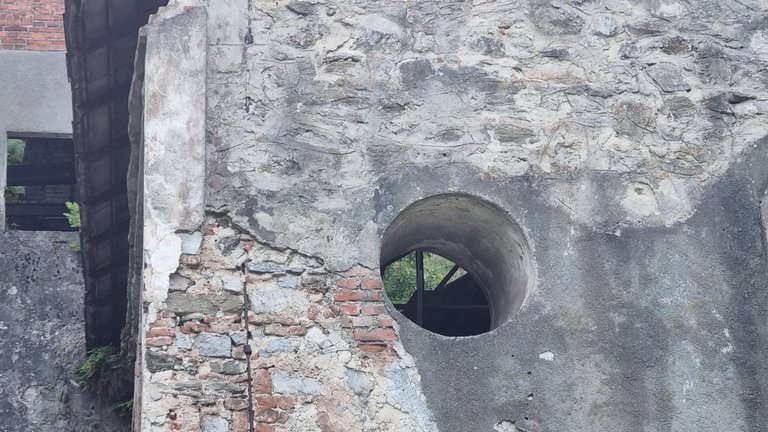
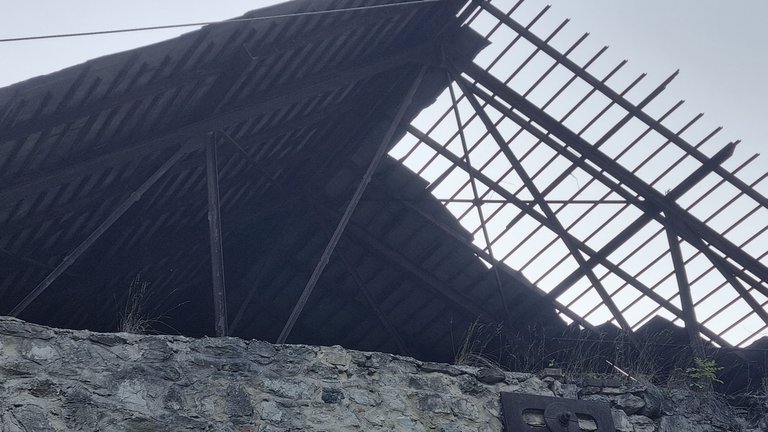
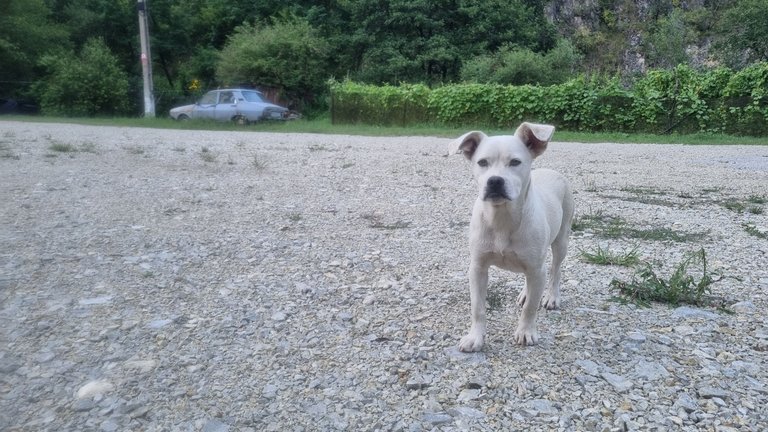
Dear visitors, the exploration of the Govăjdia blast furnace has come to an end, I hope you enjoy today's history lesson.
THE END!
If you liked what you saw and read here please don't forget to give a LiKe, Follow, reBlog or a Comment, for all this I thank you, and until the next post I say goodbye.
P.S. The attached picture you have just seen are taken by me with my mobile phone(Samsung Galaxy S21), and the text is also designed by me.
Yours @triplug😉
[//]:# (!worldmappin 45.74198 lat 22.79023 long The furnace at Govăjdia (Hunedoara County, Romania), where cast iron parts were produced for the Eiffel Tower in Paris d3scr)
👏 Keep Up the good work on Hive ♦️ 👏
❤️ @equipodelta suggested sagarkothari88 to upvote your post ❤️
🙏 Don't forget to Support Back 🙏
Thank you very much @sagarkothari88, @equipodelta and @hivecurators.
That's quite surprising, I'd expect the French to keep everything local, especially back than. Transporting it over Europe must had cost a small fortune. Not mentioning the red tapes when crossing multiple borders.
From what I have read besides these cast iron pieces that were sent from Romania to Paris, I also found out that other pieces that were used for the construction of the Eiffel Tower were also sent from other parts of Romania.
Have a wonderful weekend.
Thanks, you too :)
😉
Congratulations, your post has been added to WorldMapPin! 🎉
Did you know you have your own profile map?
And every post has their own map too!
Want to have your post on the map too?
Thank you very much.
That's a nice little mooch
I'm sorry, but I don't understand what you mean by the word "mooch"?
Ah! sorry
It is english slang term a good term......a period of time spent walking around slowly and without much purpose.
Ah ok, thanks for the explanation, have a wonderful Sunday.
cheers you have a good week
Thank you, the same to you.
👍
Really interesting article. Thank you.
I am very glad you liked my post and thank you for stopping by.
I find this your picture is realy nice. Maybe you should try joining the contest #aroundtheworld from @bucipuci.
Thanks so much for the tip, and yes, I will check out this contest.
Hiya, @ybanezkim26 here, just swinging by to let you know that this post made it into our Honorable Mentions in Travel Digest #2275.
Your post has been manually curated by the @worldmappin team. If you like what we're doing, please drop by to check out all the rest of today's great posts and consider supporting other authors like yourself and us so we can keep the project going!
Become part of our travel community:
Thank you very much.
The place and your explanations are good but the site looks almost abandoned what a shame !💓
That's right, because of the local authorities' failure to bring it back into the tourist circuit because the place has a very beautiful history.
That's an interesting place of industrial hostory! Thanks for sharing!
Hello triplug!
It's nice to let you know that your article won 🥉 place.
Your post is among the best articles voted 7 days ago by the @hive-lu | King Lucoin Curator by szejq
You and your curator receive 0.0206 Lu (Lucoin) investment token and a 7.60% share of the reward from Daily Report 378. Additionally, you can also receive a unique LUBROWN token for taking 3rd place. All you need to do is reblog this report of the day with your winnings.
Buy Lu on the Hive-Engine exchange | World of Lu created by @szejq
STOPor to resume write a wordSTARTThank you very much.
💖